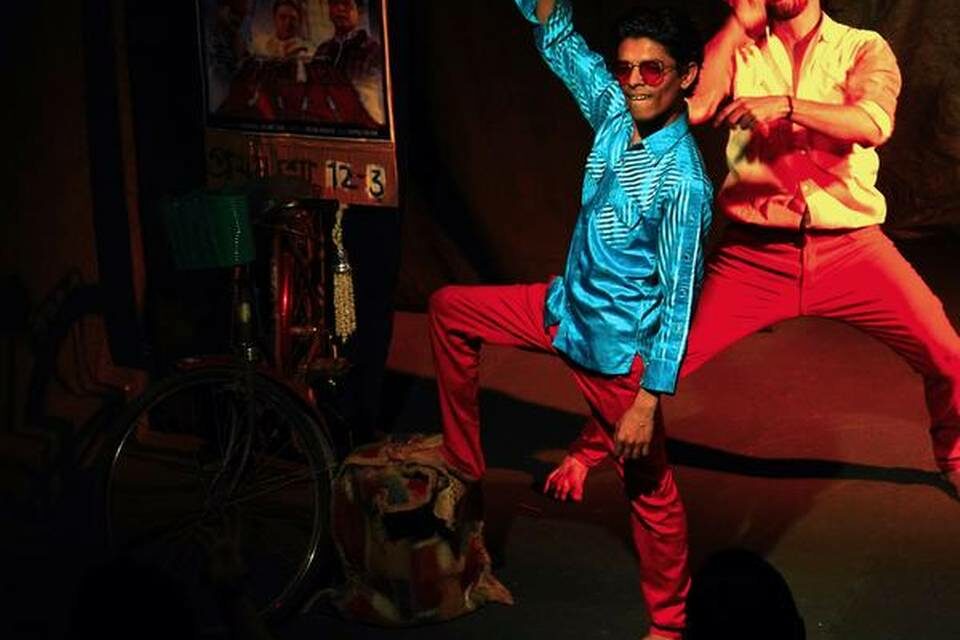Writer-director, Mahesh Ruprao Ghodeswar’s Hero Alom pays homage to the mainstream cinema even while its protagonist is an Internet sensation, says Vikram Phukan.
From objects of mass derision to insta-icons that command a kind of begrudging admiration among millions, Internet sensations run an entire gamut. Indian web audiences are no strangers to their charm and cringe. What often bubbles to the surface is the veritable opposite of what our expectations of the ‘naturally gifted’ might be. Fame or notoriety, familiar cousins both, trail these agents of collective captivation, their every step obsessively observed, their every pronouncement a worthy meme. Viral replication becomes their raison d’etre, as these intrepid micro-celebrities stream into our smartphones and gadgets even as we tarry awhile on their portents before scrolling down, compulsively as always, to the very next artifact of fleeting consumption.
Recent plays have trained their gaze on a miscellany of digital phenomena. Chanakya Vyas’ Algorithms explores how taxi-hailing apps create exploitative networks that unwitting drivers cannot extricate themselves from. Neel Chaudhuri’s Quicksand was a critique of call-out culture and the social anxieties it engenders. Shardul Bhardwaj’s Muhnochini was initially intended as a study of Pakistani social media star Qandeel Baloch, through the lens of the radical brother who strangled her. Mahesh Ruprao Ghodeswar’s Hero Alom is a Hindi play based on the eponymous Bangladeshi YouTube show-stopper, whose Bollywood-inspired music videos have turned him into a household name, and even garnered him a ticket at the last general elections in his country (he got 638 votes).
Ghodeswar’s play opened in Ahmedabad in January and will be staged in Mumbai this weekend. An article he had read about Alom’s life prompted more research into what was a rags-to-riches journey — from a 10-year-old selling bootleg CDs to a video store clerk with a secret Mithun Chakraborty fixation which soon found expression in hundreds of music videos that spread like wildfire on the Internet, in large part due to Alom’s audacious disregard for his own abilities, or lack thereof. “As a trained actor from the NSD who is uncertain about his prospects, I admired Alom’s tenacity and the manner in which he single-handedly created a viewership for himself,” says Ghodeswar who is the play’s writer and director. While ostensibly a bio-play that adheres to the known timeline of events from Alom’s life, Ghodeswar hasn’t personally met the man and has taken sufficient liberties in the manner in which he has blended fictional embellishments into the narrative. What has emerged is a sparkling tale of whimsy and derring-do, focused on the emergence of an icon. Alom’s recent run-ins with the law, on charges of wife-beating, are likely not included in the playbill.
Lurching beneath the surface are rich complexities. “Here is a man who shatters our frameworks of beauty,” explains Ghodeswar. In his videos, Alom surrounds himself with a bevy of fair-skinned women, ostensibly to make himself more marketable to the hoi polloi who view his ascendance with an aspirational gaze. The lurid B-movie ethos of his videos is also seen as a threat to the rules of aesthetics laid down by those with privilege. For Ghodeswar, Alom’s volume of work is a popular culture in motion and ‘art’ in its own right. He places him on a pantheon that includes the likes of Nirahua in Bihar, Vikram Thakor in Gujarat or Sapna Choudhary in Haryana, all kindred spirits who preside over a shared subcontinental cultural ethos. “It would be wrong to consider those who appreciate their work as backward because art is shaped by many factors,” explains Ghodeswar, whose play is also a comment on the inequities of class. The pervasive influence of Bollywood on our daily lives and relationships is another theme he grapples with in his play.
Hero Alom makes ample use of song and dance and vintage melodrama, playing out ultimately as a homage to mainstream cinema.
This article was originally written by Vikram Phukan in The Hindu on May 10, 2019, and has been republished with permission.
This post was written by the author in their personal capacity.The opinions expressed in this article are the author’s own and do not reflect the view of The Theatre Times, their staff or collaborators.
This post was written by Vikram Phukan.
The views expressed here belong to the author and do not necessarily reflect our views and opinions.


















